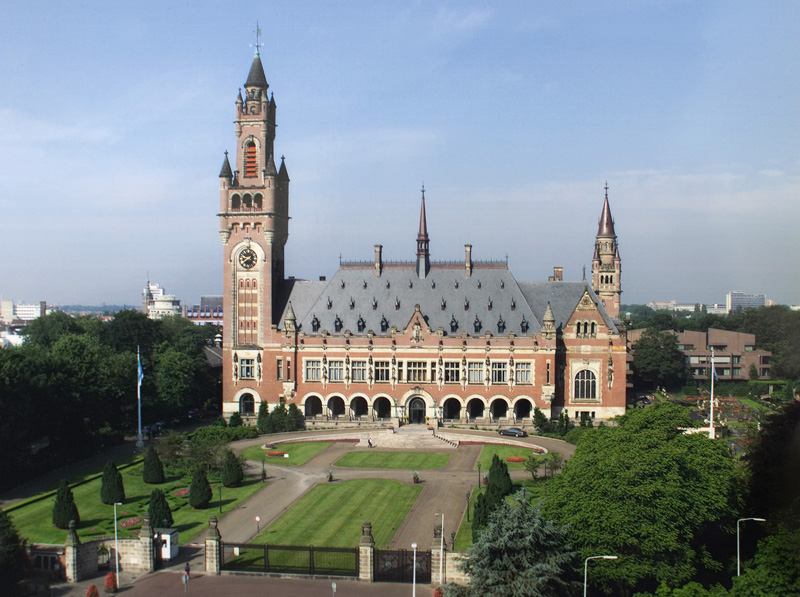
Meet the International Court of Justice

In previous posts, we’ve explored the United Nations Secretariat, the General Assembly, the Security Council, and the Economic and Social Council. It’s now time to meet the fifth active primary organ of the UN—the International Court of Justice. (Have no fear, we haven’t forgotten the Trusteeship Council—even though it’s now inactive, we’ll introduce it soon).
The International Court of Justice, sometimes referred to as the World Court, is the primary judicial organ for the United Nations. It sits in The Hague, Netherlands and is composed of fifteen independent Justices from around the world. The justices are elected by the General Assembly and Security Council for nine-year terms after being nominated by regional groups. Justices must receive a majority vote in each body to be named to the Court, and one third of the Court is elected every three years. Newly-elected justices were sworn in in 2015, so the next round of elections is slated for this year.
In 2014, two women were elected to the Court, Xue Hanquin of China and Joan Donahue of the United States, which marked the first time two women had been seated on the Court simultaneously. The other justices currently on the Court hail from France, Somalia, Japan, Slovakia, Morocco, Brazil, the United Kingdom, Italy, Uganda, India, Jamaica, Australia, the Russian Federation and Belgium. In addition to the 15 elected justices of the Court, a State party to a case before the Court may place an ad hoc justice on the Court for the case if there is no justice of its nationality on the bench.
The Court hears two types of cases, all involving United Nations Member States, rather than individuals. First, there are contentious cases between two States where there is a legal dispute and the States parties are bound to the Court’s decision. Second, the Court can issue advisory opinions on legal questions referred to it by other agencies, such as the Security Council or the General Assembly. States may institute proceedings by mutual agreement or by unilateral application against a respondent State.This is different from the International Criminal Court, which hears cases against individuals for crimes such as genocide.
Proceedings before the Court can last for years—remember, these are complex issues of international law, and there are often political questions as well. The States party to the case submit written pleadings, or memorials, and also present oral proceedings before the Court. The justices deliberate in private, then read the judgement in an open forum. The decisions of the Court are binding and final,but only on the States party to the case. ICJ cases, unlike most national legal systems, do not create binding legal requirements on other United Nations Member States, and cases are generally treated independently of one another.
Since 1946, the Court has heard more than 160 cases, including about 25 advisory opinions. So far in 2017, three cases have been submitted to the Court, and there are 15 cases either pending or currently being heard. Many of the Court’s cases—historical and contemporary—are border or territorial disputes.
Other cases are highly charged and quite political in nature—it is rare that the interpretation and application of the law operates entirely outside of the realm of political discourse, and in the international arena, this is especially true. Cases involving nuclear weapons, Israel’s building of a wall in Occupied Palestine, the seizure and return of Nazi property and European artwork, and environmental concerns have all made their way before the Court.
The ICJ—though small and distinct among United Nations organs—plays a vital role in the UN system and in the international order more broadly.
Keep Up With The Accords
More to read
The AMUN Accords is a premier resource for fact-based Model United Nations simulations. We are always looking for new contributors. Want to write for the AMUN Accords? Check out out the submission guidelines and then get in touch!




